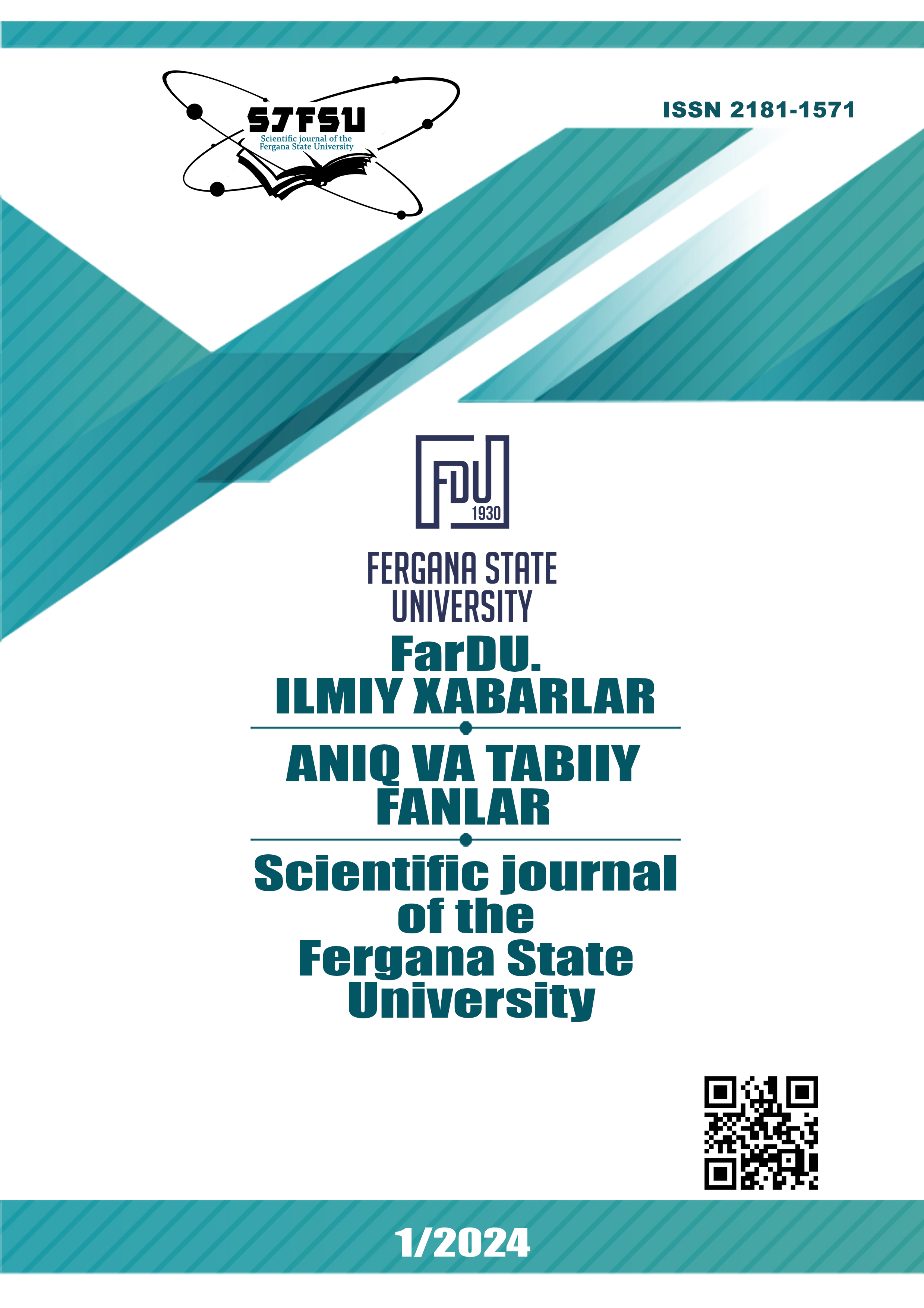ANALYSIS OF SOCIO-PHILOSOPHICAL RESEARCH DURING THE PERIOD OF INDEPENDENCE (1990-1994)
Keywords:
independence, socio-philosophical, historical and religious heritage, national idea, national ideology, theoretical, empirical, new social and philosophical thinking, the concept of national development.Abstract
During the years of independence in Uzbekistan, the opportunity arose to study the historical, cultural, socio-philosophical and spiritual-ethical heritage of our people, unjustly forgotten or rejected during the Soviet period. It became an objective necessity to restore the names of thinkers whose research was prohibited or studied monastically, and to analyze their heritage from a national-democratic point of view. Approach these studies from the point of view of a new methodology; show their significance in the education of the mature generation and in development. The purpose of the study is to study the history of social and philosophical thought in our country and highlight it in the years of independence. The time has come to collect, summarize and objectively evaluate the available empirical material. Such research will help to correctly determine the directions of our future scientific and theoretical work and focus our attention on important and topical issues. Spirituality is one of the most pressing issues today. Over the years of independence, a new social philosophy has been formed. The article analyzes scientific research conducted in the first years of independence. Brief summaries of books and works of philosophers and scientists are highlighted.
Research methods: Such methods of scientific knowledge as analysis and synthesis, retrospective analysis, content analysis, dialectical approach, historicity, continuity, comparative analysis and observation were used.
The results of the study include the following:
- Critical analysis of research conducted during the Soviet period;
- Justification that new social and philosophical thinking is an objective and moral necessity in the years of independence;
- show that national ideology and new social and philosophical thinking are dialectically harmonious realities;
In conclusion, we can say that after the independent development of the Republic of Uzbekistan, its strategic goals are the construction of a democratic rule of law state and a free civil society, the formation of a mature generation with high morals. One of the effective ways to achieve this strategic goal is to study the values of our people, our nation, socio-historical, political and spiritual experience, compatible with national development, and apply them in spiritual life.
References
Худойберганов К. Развитие общественно-политической и философской мысли в Каракалпакстане (XIX и начала XX веков). -Нукус, “Каракалпакстан”, 1990. (Khudoyberganov K. Development of socio-political and philosophical thought in Karakalpakstan (XIX and early XX centuries). -Nukus, “Karakalpakstan”, 1990.)
Қаранг: Из истории общественно-философской мысли и вольнодумия в средней Азии. -Т.: “Фан”, 1991.-С. 35. (look: From the history of social and philosophical thought and freethinking in Central Asia. -T.: “Fan”, 1991.-P. 35.)
Қаранг: Нишанов М.Н. Обновление духовной жизни наций. —Т.: Фан, 1992; Ширматова Г. Взаимодействие национальных культур и духовное формирование личности. —Т.: Фан, 1991, ва б. (look: Nishanov M.N. Renewal of the spiritual life of nations. — T.: Fan, 1992; Shirmatova G. Interaction of national cultures and spiritual formation of personality. —T.: Fan, 1991, and other)
Downloads
Published
Issue
Section
License
Copyright (c) 2024 Scientific journal of the Fergana State University

This work is licensed under a Creative Commons Attribution-NonCommercial-NoDerivatives 4.0 International License.
How to Cite
Most read articles by the same author(s)
- , ABOUT THE CONCEPT OF «TRANSLATION CENTERS OF MEDIEVAL EUROPE» AND IT’S SCHOLARLY USE , Scientific journal of the Fergana State University: No. 5 (2022): Scientific journal of the Fergana State University
- , , , STUDYING THE MACRO AND MICROELEMENT COMPOSITION OF LOCAL WINE PRODUCTS , Scientific journal of the Fergana State University: No. 4 (2024): FarDU.Ilmiy xabarlar jurnali (Aniq va tabiiy fanlar)
- , , , INVESTIGATION OF THE ELEMENTAL COMPOSITION OF THE PLANT PRUNUS CERASUS L. BY ICP-MS. , Scientific journal of the Fergana State University: No. 2 (2023): Scientific journal of the Fergana State University (Exact and natural sciences)
- , , , STUDY OF THE MINERAL COMPOSITION OF RABBIT BY-PRODUCTS , Scientific journal of the Fergana State University: No. 6 (2024): FarDU.Ilmiy xabarlar jurnali (Aniq va tabiiy fanlar)
- , , , STUDY OF AMINO ACID COMPOSITION OF RABBIT MEAT , Scientific journal of the Fergana State University: No. 6 (2024): FarDU.Ilmiy xabarlar jurnali (Aniq va tabiiy fanlar)
- , , , DETERMINATION OF FABRICS COLOR FASTNESS, SWEAT RESISTANCE AND COLOR FADING RESISTANCE , Scientific journal of the Fergana State University: No. 3 (2024): FarDU.Ilmiy xabarlar jurnali. Ilova to'plam (Aniq va tabiiy fanlar)
- , , DETERMINATION OF THE QUANTITATIVE COMPOSITION OF MINERAL SUBSTANCES IN THE SKIN , Scientific journal of the Fergana State University: No. 4 (2023): Scientific journal of the Fergana State University (Exact and natural sciences)
- , , STUDY OF MINERAL AND FLAVONOID COMPOSITION OF POMEGRANATE FRUIT , Scientific journal of the Fergana State University: No. 6 (2024): FarDU.Ilmiy xabarlar jurnali (Aniq va tabiiy fanlar)
- Xikmatillo Abdikunduzov , Alidjon Ibragimov , Otabek Nazarov , Iqboljon Jalolov , Elyor Akbarov , DETERMINATION OF THE QUALITY AND QUANTITY COMPOSITION OF FLAVONOIDS IN THE LEAVES OF GRAPE (Vitis vinifera) VARIETY PINOT NOIR , Scientific journal of the Fergana State University: No. 1 (2022): Scientific journal of the Fergana State University
- , , , STUDY OF THE PHYTOCHEMICAL COMPONENTS OF ANABASIS APHYLLA L. GROWING IN UZBEKISTAN , Scientific journal of the Fergana State University: No. 6 (2024): FarDU.Ilmiy xabarlar jurnali (Aniq va tabiiy fanlar)

